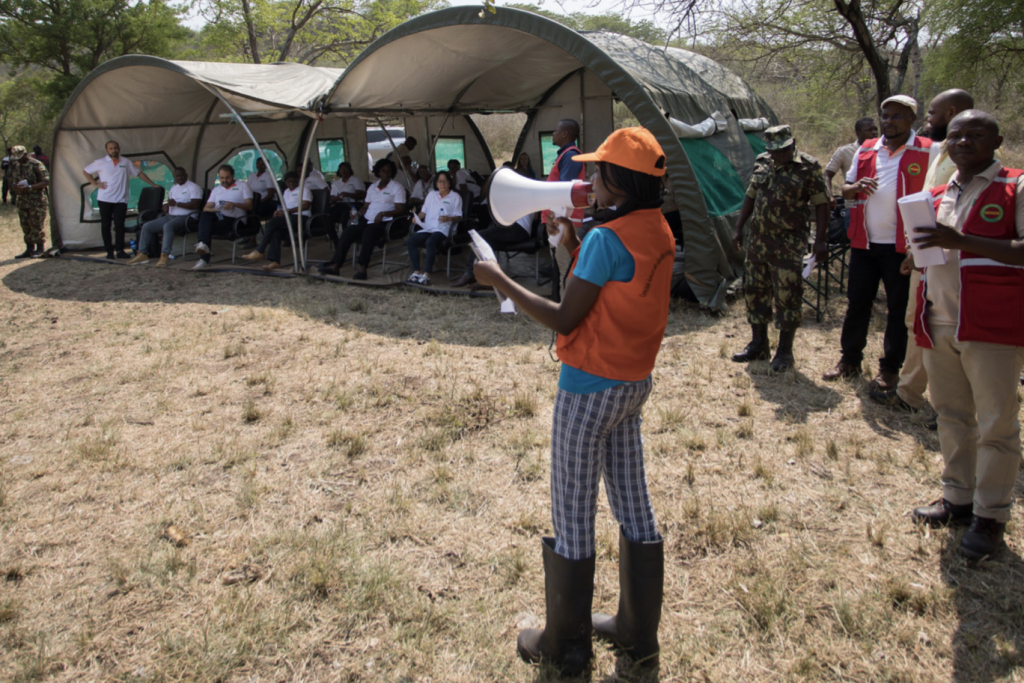A new report from the United Nations Office for Disaster Risk Reduction (UNDRR) and the World Meteorological Organization (WMO) has found that Africa has doubled the quality of its early warning systems coverage, but still falls below the global average. It found that half of countries globally still do not have adequate multihazard early warning systems.
The report, the 2023 Global Status of Multi-Hazard Early Warning Systems, analyzes the latest data one year into the Early Warnings for All initiative which aims to cover everyone everywhere by 2027. Launched at COP28 by United Nations secretary-general António Guterres, the report reveals that 101 countries have reported having an early warning system, an increase of six countries compared to last year, representing a doubling of coverage since 2015.
Less than half of the least developed countries (LDCs) and only 40% of small island developing states (SIDS) have a multihazard early warning system. Risk knowledge to underpin early warning systems was found to be particularly low in the Arab states.
The WMO-UNDRR report recommended investing in risk governance as a proven basis for enabling effective early warning systems. Countries with more comprehensive strategies, integrating climate adaptation and disaster resilience, showed an even better coverage of early warning systems. The report also emphasized intensified efforts to ensure hard-to-reach communities have early warning systems that reach everyone and that are based on local needs. Levels of community preparedness have improved with 250 million people evacuated each year globally since 2015 before a disaster strikes, but the report noted the need to strengthen anticipatory action for better preparedness.
“What we are delivering under the Early Warnings for All initiative can protect and save vulnerable communities from the worst impacts. This is an ambitious goal – but it is also achievable,” said António Guterres, secretary-general of the United Nations. He called for a doubling of the speed and scale of support in countries in 2024. “For us to make it a reality, we need all hands on deck rowing in the same direction – collaborating and cooperating in a way that we have not done before.”
COP28 announcements on December 3, 2023 included Skr60m (US$5.7m) from Sweden, Dkr40m (US$5.8m) from Denmark and confirmation of an additional €8m (US$43m) in funding from France. This funding is intended to speed more rapid progress and build on the foundations already laid since the initiative was launched, including the joint commitment of all major multilateral development banks and the Green Climate Fund in scaling up investment for early warning systems. The focus now is on scaling up support in more countries and securing the finance to deliver Early Warnings for All in the next four years.
Guterres said that the Maldives, Laos and Ethiopia now have dedicated national action plans and coordination structures in place. Additionally, Benin has strengthened communications to reach communities at greatest risk, and Fiji’s flash flood warning has been strengthened to protect the entire population of nearly 1 million people.
Over 400 million people in LDCs and SIDS now reportedly have access to better predictions and warnings for floods, drought, heat waves and tropical cyclones. The organization highlighted that countries such as Papua New Guinea and Burkina Faso can now issue drought seasonal predictions for small-scale farmers, many of them women, thanks to the Climate Risk and Early Warning Systems Initiative (CREWS).

France announced that it would provide €8m (US$8.6m) annually to CREWS for the coming years, a doubling of the previous commitment. This announcement complements financing in 2023 by Canada, Switzerland, Luxembourg, Monaco and the UK. This has resulted in the largest increase in annual contributions since the launch of the initiative.
The Systematic Observations Financing Facility (SOFF) is moving swiftly to fill the gap in basic weather and climate data. In total, 60 countries are receiving initial support and more than US$30m in investment was approved at the event.
Guterres continued, “All major multilateral development banks, the global climate funds and the key financing mechanisms have coalesced around the Early Warnings for All initiative. These commitments are essential and invaluable.” The WMO-UNDRR report found galvanized political commitment and leadership, with 30 countries leading on advancing early warnings and a regional plan in Africa to boost implementation.
Mami Mizutori, special representative of the UN secretary-general for disaster risk reduction and head of UNDRR, commented, “The progress is encouraging but we must not be complacent. With an 80% increase in the number of people affected by disasters since 2015 and half the world still lacking access to early warnings, it is imperative to take action now to save lives, livelihoods and assets.”
Prof. Petteri Taalas, WMO secretary-general, added, “We are making progress but we need to do more. Many countries in Africa, the Pacific and South America still have significant gaps in attaining the minimum number of meteorological observations required to drive forecasting. Early warnings are the low-hanging fruit of climate adaptation. They are not a luxury but a must.”
A new Early Warnings for All dashboard has also been launched to provide a holistic understanding of the current status of early warning systems to help channel investments to close the gap. The dashboard is the product of the collective effort of all partners who put together data, sources and methodologies into the creation of an online monitoring tool. It is intended to facilitate information sharing, improve coordination and strengthen accountability. It is to further serve as a centralized data portal for the initiative.
To find out more about WMO’s latest developments, click here.



